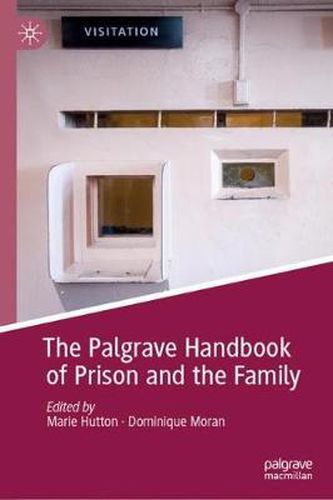Readings Newsletter
Become a Readings Member to make your shopping experience even easier.
Sign in or sign up for free!
You’re not far away from qualifying for FREE standard shipping within Australia
You’ve qualified for FREE standard shipping within Australia
The cart is loading…






This title is printed to order. This book may have been self-published. If so, we cannot guarantee the quality of the content. In the main most books will have gone through the editing process however some may not. We therefore suggest that you be aware of this before ordering this book. If in doubt check either the author or publisher’s details as we are unable to accept any returns unless they are faulty. Please contact us if you have any questions.
This handbook brings together the international research focussing on prisoners’ families and the impact of imprisonment on them. Under-researched and under-theorised in the realm of scholarship on imprisonment, this handbook encompasses a broad range of original, interdisciplinary and cross-national research. This volume includes the experiences of those from countries often unrepresented in the prisoner’s families’ literature such as Russia, Australia, Israel and Canada. This broad coverage allows readers to consider how prisoners’ families are affected by imprisonment in countries embracing very different penal philosophies; ranging from the hyper-incarceration being experienced in the USA to the less punitive, more welfare-orientated practices under Scandinavian ‘exceptionalism’.
Chapters are contributed by scholars from numerous and diverse disciplines ranging from law, nursing, criminology, psychology, human geography, and education studies. Furthermore, contributions span various methodological and epistemological approaches with important contributions from NGOs working in this area at a national and supranational level. The Palgrave Handbook of Prison and the Family makes a significant contribution to knowledge about who prisoners’ families are and what this status means in practice. It also recognises the autonomy and value of prisoners’ families as a research subject in their own right.
$9.00 standard shipping within Australia
FREE standard shipping within Australia for orders over $100.00
Express & International shipping calculated at checkout
This title is printed to order. This book may have been self-published. If so, we cannot guarantee the quality of the content. In the main most books will have gone through the editing process however some may not. We therefore suggest that you be aware of this before ordering this book. If in doubt check either the author or publisher’s details as we are unable to accept any returns unless they are faulty. Please contact us if you have any questions.
This handbook brings together the international research focussing on prisoners’ families and the impact of imprisonment on them. Under-researched and under-theorised in the realm of scholarship on imprisonment, this handbook encompasses a broad range of original, interdisciplinary and cross-national research. This volume includes the experiences of those from countries often unrepresented in the prisoner’s families’ literature such as Russia, Australia, Israel and Canada. This broad coverage allows readers to consider how prisoners’ families are affected by imprisonment in countries embracing very different penal philosophies; ranging from the hyper-incarceration being experienced in the USA to the less punitive, more welfare-orientated practices under Scandinavian ‘exceptionalism’.
Chapters are contributed by scholars from numerous and diverse disciplines ranging from law, nursing, criminology, psychology, human geography, and education studies. Furthermore, contributions span various methodological and epistemological approaches with important contributions from NGOs working in this area at a national and supranational level. The Palgrave Handbook of Prison and the Family makes a significant contribution to knowledge about who prisoners’ families are and what this status means in practice. It also recognises the autonomy and value of prisoners’ families as a research subject in their own right.